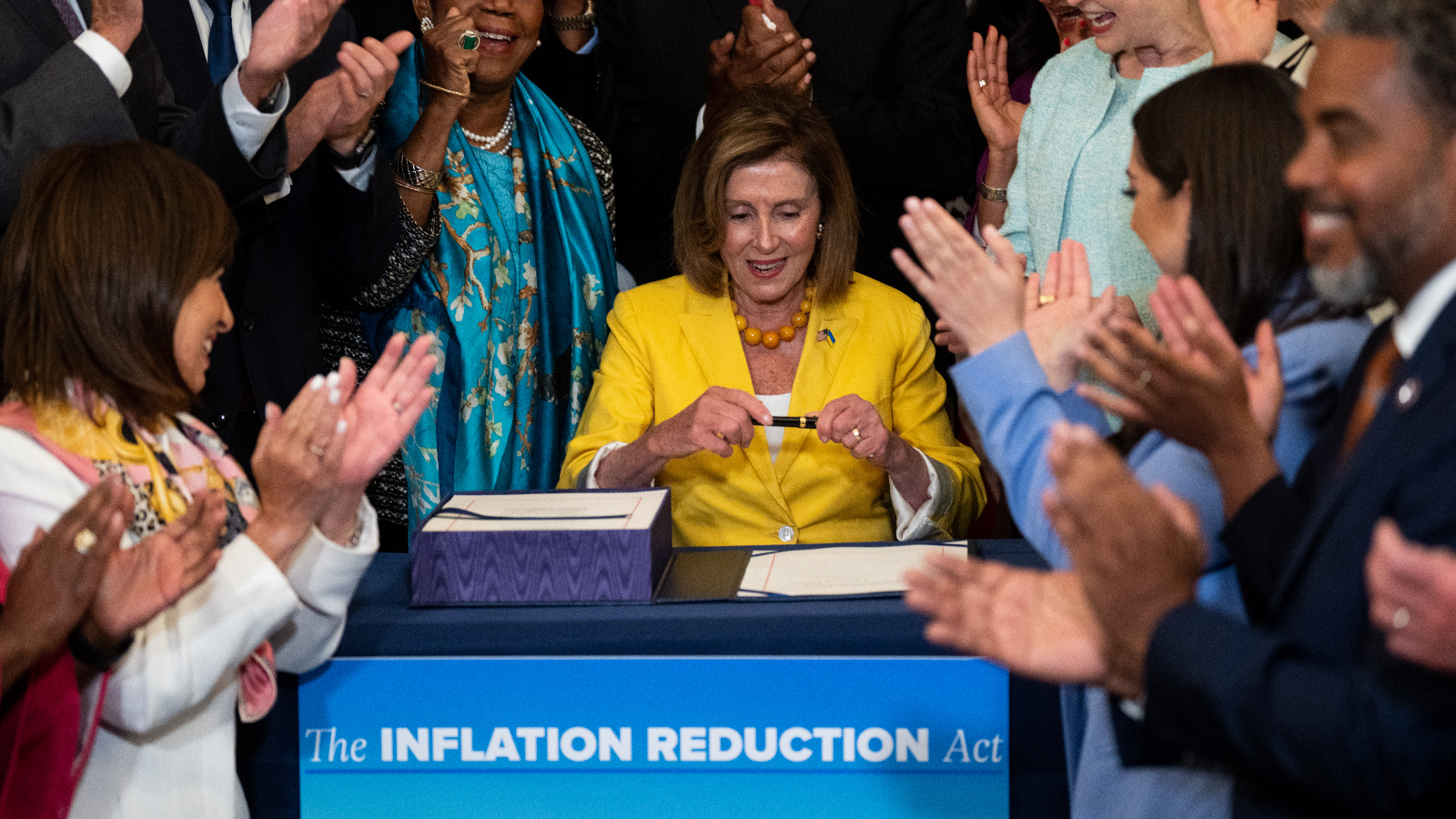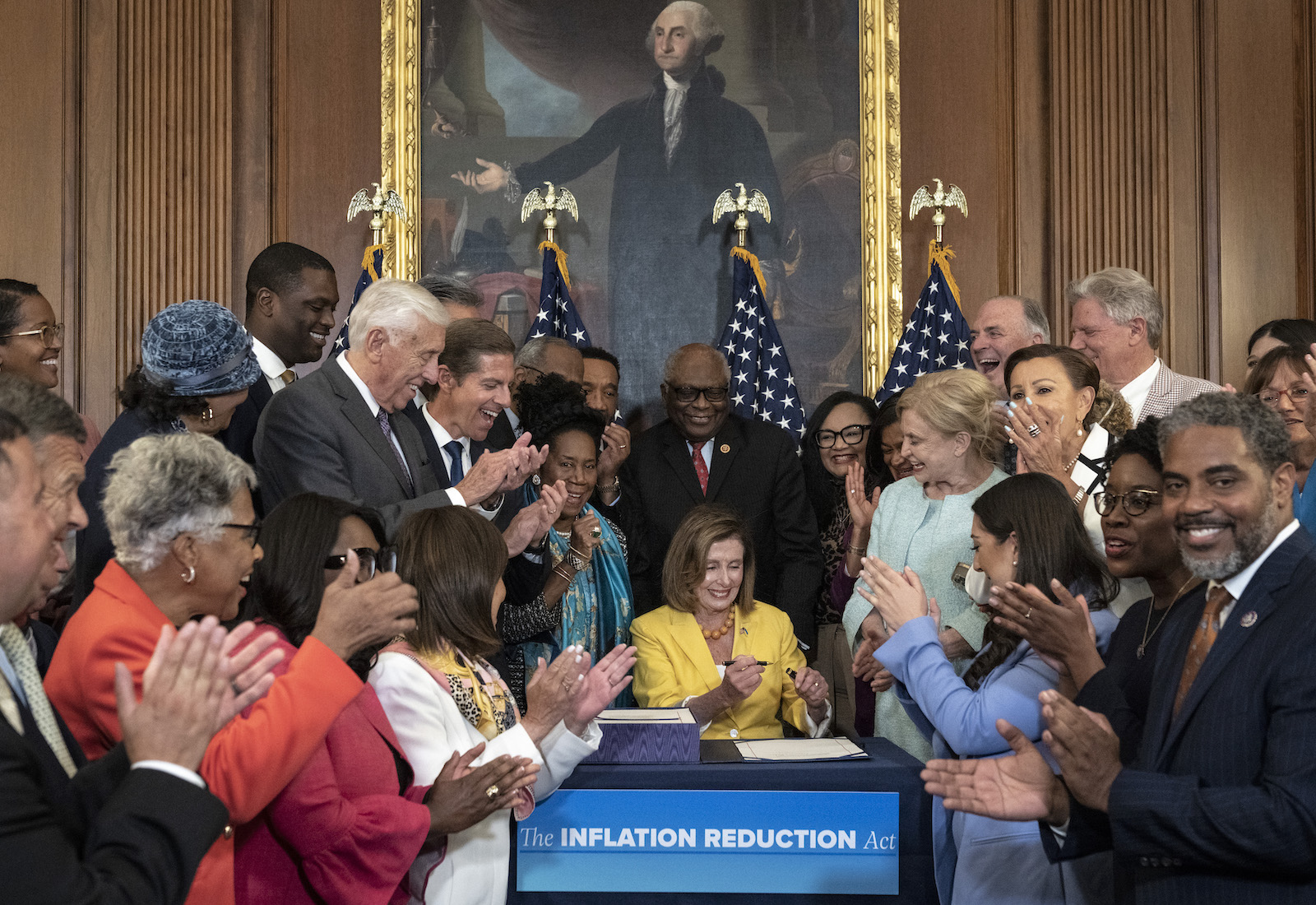by Annie Waldman
ProPublica is a nonprofit newsroom that investigates abuses of power. Sign up to receive our biggest stories as soon as they’re published.
There was a time when Sharelle Menard thought her son would never be able to speak. She couldn’t soothe Benji when he cried, couldn’t read him books he could follow, couldn’t take him out in public. “The screaming, and screaming, and screaming,” she said. “He would get so frustrated because he couldn’t communicate.”
Benji was nearly 3 when he was diagnosed with severe autism and soon after started a specialized therapy to help him develop basic skills. After two years in treatment, his murmuring gave way to small words, with “bubbles” among the first. To celebrate, Menard powered up a bubble machine she found at the dollar store, and for hours, they watched the iridescent orbs drift over their porch.
Menard, who is raising Benji alone in south-central Louisiana, began to picture a future for her son that diverged from the stories she’d heard about some kids with similar diagnoses, who grew up still unable to manage their frustrations and had to live in nursing homes or institutions.
But now, she’s worried again.
The insurer that has been paying for her son’s therapy, UnitedHealthcare, has begun — to the befuddlement of his clinical team — denying him the hours they say he requires to maintain his progress. Inside the insurance conglomerate, the nation’s largest and most profitable, the slashing of care to children like Benji does have a reason, though it has little to do with their needs. It is part of a secret internal cost-cutting campaign that targets a growing financial burden for the company: the treatment of thousands of children with autism across the country.
Sharelle Menard cares for Benji at their home in Louisiana. Benji, who is severely affected by autism, requires a specialized therapy.
(Annie Flanagan, special to ProPublica)
ProPublica has obtained what is effectively the company’s strategic playbook, developed by Optum, the division that manages mental health benefits for United. In internal reports, the company acknowledges that the therapy, called applied behavior analysis, is the “evidence-based gold standard treatment for those with medically necessary needs.” But the company’s costs have climbed as the number of children diagnosed with autism has ballooned; experts say greater awareness and improved screening have contributed to a fourfold increase in the past two decades — from 1 in 150 to 1 in 36.
So Optum is “pursuing market-specific action plans” to limit children’s access to the treatment, the reports said.
“Key opportunities” are outlined in bullets in the documents. While acknowledging some areas have “very long waitlists” for the therapy, the company said it aims to “prevent new providers from joining the network” and “terminate” existing ones, including “cost outliers.” If an insurer drops a provider from its network, patients may have to find a new clinician that accepts their insurance or pay up to tens of thousands of dollars a year out of pocket for the therapy. The company has calculated that, in some states, this reduction could impact more than two-fifths of its ABA therapy provider groups in network and up to 19% of its patients in therapy.
Internal company documents reveal the strategy by Optum, a UnitedHealth Group subsidiary, to prevent ABA providers from participating in its network.
(Obtained by ProPublica)
The strategy targets kids covered through the company’s state-contracted Medicaid plans, funded by the government for the nation’s poorest and most vulnerable patients. To manage Medicaid benefits, states often pay private insurers a fixed amount of funds per patient, regardless of the frequency or intensity of services used. When companies spend less than the allotted payment, they are typically allowed to keep some or all of what remains, which federal investigators and experts acknowledge may be incentivizing insurers to limit care.
United administers Medicaid plans or benefits in about two dozen states and for more than 6 million people, including nearly 10,000 children with autism spectrum disorder. Optum expects to spend about $290 million for ABA therapy within its Medicaid plans this year, and it anticipates the need increasing, documents show. The number of its Medicaid patients accessing the specialized therapy has increased by about 20% over the past year, with expenses rising about $75 million year-on-year.
So Optum — whose parent company, UnitedHealth Group, earned $22 billion in net profits last year — is “heavily investing” in its plan to save millions by limiting access to such care.
In addition to culling providers from its network, the company is scrutinizing the medical necessity of the therapy for individual patients with “rigorous” clinical reviews, which can lead to denials of covered treatment. Optum has developed an “approach to authorizing less units than requested,” the records state.
Internal company documents reveal Optum is deploying “rigorous utilization management” in response to an increased need for ABA therapy.
(Obtained by ProPublica)
Mental health and autism experts and advocates reviewed ProPublica’s findings and expressed outrage over the company’s strategy. Karen Fessel, whose Mental Health and Autism Insurance Project helps families access care, called the tactics “unconscionable and immoral.”
“They’re denying access to treatment and shrinking a network at a time when they clearly know that there is an urgent need,” she said.
United and Optum declined a request ProPublica made more than a month ago for an on-the-record interview about their coverage of behavioral health care. They have not answered questions emailed 11 days ago, citing the Dec. 4 killing of UnitedHealthcare’s CEO as the reason. In an email, a spokesperson said “we are in mourning” and could not engage with a “non-urgent story during this incredibly difficult moment in time.” Offered an additional day or two, the company would not agree to a deadline for comment.
Benji, who is now 10, requires 33 hours of weekly therapy to be able to progress, his therapists have concluded. They have documented the consequences of having even a few hours less: toppled furniture, scratched-up classroom aides, a kid in unremitting tears, unable to learn. But in a letter to Menard, Optum said it was refusing to pay for the full hours, stating that her son had been in therapy for too long and was not showing enough progress to ultimately graduate from it.
“Your child still has a lot of difficulty with all autism-related needs,” Optum wrote. “Your child still needs help, but it does not appear that your child will improve enough to end ABA.”
The response confounded experts who spoke with ProPublica, who said such an approach misunderstands the long-term nature of his condition. “Challenges that often come with autism shouldn’t be looked at like an injury that you’re going to get better from quickly and then the treatment can stop,” said Christa Stevens, who directs state government affairs for the advocacy group Autism Speaks. “Treatment may still be medically necessary even if it’s for skill maintenance or the prevention of regression.”
The company’s denial also appears to contrast with recent professional guidelines for the therapy — which are cited as a reference in Optum’s own clinical criteria — that state “there is no specific limit on the duration of a course of treatment.”
The appropriate duration of treatment, according to those standards and experts interviewed by ProPublica, should be based on the patients’ needs, as evaluated by the clinicians working directly with the patients.
“This is a very blunt instrument to chase after excessive costs,” said Tim Clement, the vice president of federal government affairs at the nonprofit group Mental Health America.
Several advocates told ProPublica the company’s strategy is legally questionable.
The federal mental health parity law requires insurers to provide the same access to mental health and physical care. As ProPublica recently reported, United has gotten in trouble in the past for targeting therapy coverage in a way that violates the law; while denying the allegations, it agreed to a multimillion-dollar settlement. It continues to use arbitrary and one-size-fits-all thresholds to scrutinize its therapy claims, ProPublica previously found.
It would raise legal questions if the company restricted ABA more stringently than comparable physical care, the advocates said.
“Medicaid managed care organizations are subject to the parity act,” said Deborah Steinberg, a senior health policy attorney with the nonprofit advocacy group Legal Action Center. The company may be violating Medicaid regulations, she said, which require managed care organizations to maintain networks sufficient to provide covered services to all enrollees.
Last year, the federal government formally affirmed that ABA therapy is a protected benefit, and it recently investigated health plans for entirely excluding its coverage; legislators have passed laws in every state requiring insurance companies to pay for it.
“Yes, this therapy can be expensive,” said Dan Unumb, an attorney and president of the Autism Legal Resource Center. “But solving the problem by denying kids access to medically necessary care is a terrible solution.”
“What Happens if We Withdraw the Care?”
Benji dances with his behavior analyst, Whitney Newton, at Aspire Behavioral Health Center in Lafayette.
(Annie Flanagan, special to ProPublica)
Benji was making progress about three years ago.
For more than 33 hours a week in the specialized therapy, his clinicians broke down the learning process into basic steps, using repetition and positive reinforcement to affirm behaviors. The state’s Medicaid contractor, UnitedHealthcare, covered the bill.
Researchers have found that about a quarter of kids diagnosed with autism are severely affected; these children are often minimally or non-speaking or require extensive assistance for basic daily needs. “Things a lot of people take for granted,” said Menard. While experts continue to debate which therapies are most effective and appropriate for these kids, ABA is one of the most widely recommended.
By 7, Benji had accumulated a few dozen words, and his aggressive, prolonged tantrums had grown less frequent, allowing his mother to take him grocery shopping and to mass on Sundays. It was time for him to go to school, she thought.
Menard enrolled him in their public school district, St. Martin Parish. He attended Breaux Bridge Primary twice a week in a special education classroom and continued therapy the other days. Menard urged the district to allow a therapeutic technician to shadow him in school, but it refused. (The district declined to respond to ProPublica’s questions, citing privacy restrictions.)
With the diminished hours of treatment, Benji grew increasingly disruptive. “It was a disaster,” said Menard. He snapped a swing in gym class and struggled to sit still during lessons. When teachers tried to give him instructions, he hit them. His speech plateaued and eventually regressed.
Menard, who cleans pools for a living, grew to fear the moment her phone rang. School employees, unable to soothe Benji’s tantrums, frequently called her to take him home. One morning last spring, they told her Benji had lashed out when an aide tried to persuade him to work, aggressively poking their hand with a pencil. He hadn’t broken the skin, but after a dozen incidents, the situation was becoming unsalvageable. The district made her sign a behavioral contract, his second in two years: If Benji didn’t behave, he could be suspended or expelled.
Menard felt she had no choice but to withdraw Benji. She enrolled him full time in a home-study program run by his therapy group, Aspire Behavioral Health Center in Lafayette, which costs about $10,000 a year in tuition, a substantial portion of her paycheck. That was in addition to the therapy cost, which his insurance still covered.
Benji’s clinicians determined he needed direct support for most of the day and told Optum they wanted him to scale up his therapy from 24 hours a week to 33. They expected the insurer would approve the request; after all, it was less than what was previously covered and only nine hours more than it was currently paying for.
But Optum denied the increase in a letter to Menard this past May. “Your child has been in ABA for six years,” the insurer wrote. “After six years, more progress would be expected.”
The response disturbed Whitney Newton, Benji’s behavior analyst and a clinical director at Aspire; it didn’t seem rooted in the established medical standards for the treatment. She’d seen firsthand how critical the therapy had been to his growth. “We know what he needs. It’s in our scope of practice and it’s our right as the provider to determine that,” she said. “They’re cutting and denying an unethical amount.”
Newton has worked with Benji since he was 3.
(Annie Flanagan, special to ProPublica)
The center’s founder, psychologist Joslyn McCoy, has grown accustomed to battling insurers. Her practice serves about 160 patients between the ages of 2 and 19 across five centers, and many have Medicaid coverage. In 2022, Louisiana expanded its Medicaid parameters, allowing parents with higher incomes to access coverage for children with complex medical needs.
“What I’m seeing is that children now have this ticket to access this care, but then once they go to try to access it, it’s being denied,” she said.
Nearly two years ago, Optum selected her center for a payment integrity audit, demanding to inspect its clinical and billing records. After her team turned over thousands of pages of documentation, Optum conducted a separate in-person quality review.
Internal company records show Optum is targeting ABA providers for scrutiny based on how much they invoice and how many services they provide. Groups like McCoy’s can be be flagged for patterns that providers told ProPublica are are typical in the delivery of ABA therapy: billing on weekends or holidays, serving multiple family members in one practice, having long clinician or patient days, providing an “above average delivery” of services, or abruptly increasing or decreasing the number of patients or claims.
Internal company documents reveal Optum’s strategy for identifying ABA providers for scrutiny based on “outlier patterns.”
(Obtained by ProPublica)
McCoy said that a company executive who visited her office for the quality review told her that she approved of the center’s work and thought Aspire should expand across the state.
But Optum has continued to challenge her patients’ individual therapy claims.
When her team received the denial for Benji’s care, McCoy set out to gather hard evidence to demonstrate the necessity of his treatment. “It’s what we call a reversal to baseline, where we will withdraw the treatment for a short period of time,” McCoy said. “The reason is to demonstrate what happens because we’re curious, too: What happens if we withdraw the care?”
Joslyn McCoy, founder and director of Aspire Behavioral Health Center
(Annie Flanagan, special to ProPublica)
Much of the therapy is driven by positive reinforcement; for example, if Benji pays attention and engages in his academic exercises, he can take a break to play on his iPad. But the reward is contingent on him not hitting anyone for at least 10 minutes at a time. During the experiment, the clinicians took away the possibility of his reward, and without an incentive, they had limited leverage to manage his behavior.
At first, Benji lightly hit the staff, they said, as though testing the limits. But when there was no response to his behavior, it began to escalate. He tossed chairs and flipped tables. He pushed Newton into a bookshelf, which collapsed to the ground. He hit walls and windows, eventually turning his fists on his aide. They stopped the experiment early, both for his safety and theirs.
Once they resumed the interventions, Benji was able to calm down.
Newton drafted a report, including line charts that quantified his behavior with and without the interventions and photographs of her team’s injuries. She faxed it to Optum, asking the company to reconsider the denial.
The insurer did not change its decision.
“The Need Is Not Going Away”
Benji works with registered behavioral technician Hortencia Cervantez during ABA treatment.
(Annie Flanagan, special to ProPublica)
Last month, inside a cubicle decorated with posters of Minions and Mario Brothers, a behavior technician placed a laminated card with an image of a sneaker in front of Benji.
“What is this?” she asked him.
Benji paused, rubbing the edge of his baseball cap and pursing his lips. “Sh,” he said, stuck on the consonant.
“Shoes, that’s right,” the technician responded. She pulled out another card, showing a slice topped with white frosting. “Is this cake?”
“No,” Benji said.
“Is this cake?” she repeated, before adding, “yes.”
“Yes,” echoed Benji, but her correction appeared to frustrate him. He hit the technician on the leg, softly but with determination.
“We’ll let it go,” she warned with a sugared voice, “but hands to self, OK?”
After 10 minutes, a timer beeped. It was time for Benji’s reward, getting to hear a reggaeton hit by Daddy Yankee. “It’s a big reinforcer here,” Newton said.
Even though Optum denied the additional hours of treatment, Benji has continued to receive them. “We’re giving the hours even if they were not approved,” McCoy said. “We don’t think it would be safe for him to do what the insurance is saying.”
Next month, a state administrative law judge will hear an appeal for the additional hours. If the request is approved, Benji’s clinicians will be paid for the six months of services that they’ve provided without reimbursement.
Even if that happens, their battle with the insurer will go back to square one. Each insurance authorization typically lasts for only six months, and soon after the hearing date, the clinicians will have to request coverage for his treatment again.
They will be doing so at a time when internal records show Optum has deployed more than 90 “care advocates” to question clinicians about the medical necessity of their patients’ ABA treatment, using “quality initiatives to decrease overutilization and cost.”
Optum is focusing on states whose Medicaid plans yield the highest costs for ABA therapy, including Arizona, Nebraska, Tennessee, Virginia, New Jersey, Indiana and Louisiana, where Menard and her son live. ProPublica reached out to the state Medicaid programs with questions about their oversight of United’s practices. Arizona’s Medicaid agency told ProPublica that all managed care organizations, including United, are required to provide timely services within their networks, and that the agency has been closely monitoring ABA networks. (Read its full response.) No other state Medicaid agencies responded to ProPublica’s questions.
Internal company documents reveal Optum’s strategy for managing its ABA coverage.
(Obtained by ProPublica)
Autism experts said such a strategy may not only be harmful to children, it could also ultimately be more expensive for states, as children age and require more intensive services, like residential or nursing care.
“If these kids get the intervention they need as children, then there will be tremendous cost savings over the course of their lives,” said Lorri Unumb, an attorney and CEO of the Council of Autism Service Providers.
Menard worries about what will happen to her son’s hard-fought gains if he can’t get the level of therapy he needs. And even if the additional nine hours are approved, she fears that with the next authorization, they could face a more drastic denial that could be challenging to overturn.
“This motivation and momentum — when you lose that,” she said, “it’s so hard to get it back.” She doesn’t believe that Benji needs to be fixed or cured or changed from who he is. She just hopes the therapy helps him to be better able to advocate for himself and, ultimately, be safe. “There’s nothing else that I’ve known to work,” she said.
McCoy resents being put in the position of scaling back care that her patient needs because an insurer is refusing to pay. “It puts us in a tough place, because we don’t want to discontinue therapy of our client who’s not ready,” she said.
When such denials become common, it disincentivizes clinicians from working with insurance companies, she said, and can ultimately drive clinics into the ground. “The patients can’t afford it,” she said, “so eventually the private provider goes out of business.”
But even if children like Benji get pushed out of treatment, there is no shortage of children seeking care. McCoy’s center currently has a waitlist of about 260 children.
That list may likely expand. Internal documents show Optum is aiming to exclude from its network about 40% of Louisiana groups that offer ABA therapy. About 1 in 5 children whose treatment is covered by the company’s Medicaid plan in the state could lose access to care.
“If the insurance company wants to deny all of our clients, we’re going to replace them,” she said. “The need is not going away.”
This content originally appeared on ProPublica and was authored by by Annie Waldman.
This post was originally published on Radio Free.









